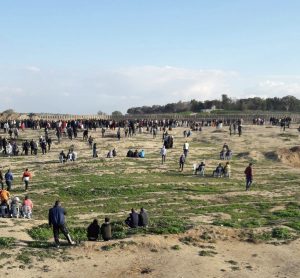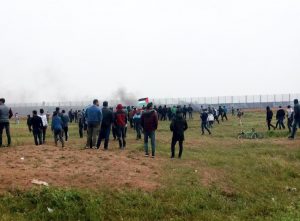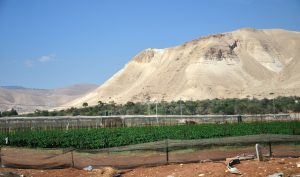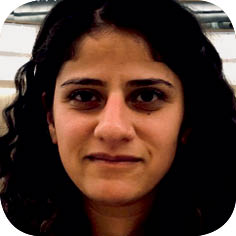For the past four decades, Al-Haq, the first Palestinian nongovernmental independent human rights organization, has been at the forefront of monitoring and documenting human rights violations across the Occupied Palestinian Territory (OPT). In doing so, Al-Haq seeks to promote and protect the rule of law, and advocate for the protection and realization of human rights for the Palestinian people, including the genuine realization of the right to self-determination, human dignity, and freedom from occupation. Accordingly, Al-Haq’s mandate evolved over the decades to include a critical and central pillar of seeking accountability for perpetrators of violations of international humanitarian and human rights law and access to remedy and justice for those affected, both as a result of laws, policies, and practices of Israel, as occupying power, and the Palestinian Authority where it exercises jurisdiction. The fight for the realization of Palestinian rights has been exceptionally challenging, especially due to the lack of political will on the part of the international community and its selective approach, bias, and continued attempts to dehumanize Palestinians for political and economic gains. This has been coupled with a global shrinking space for human rights organizations, defenders, and activists that resonates strongly in Palestine.

Despite the relentless work and efforts carried out by Palestinian civil society, including Al-Haq, in advocating for Palestinian human rights, the situation on the ground has continued to worsen. This is primarily due to Israel’s prolonged belligerent occupation and broader settler-colonial project, which seeks to control and eliminate the Palestinian presence, including by denying it basic rights such as the right to life, dignity, and freedom of movement, among numerous others. Accordingly, central to Al-Haq and other organizations’ advocacy efforts at local, regional, and international levels is providing legal analysis on the situation in the OPT and the status and obligations of Israel, as occupying power, and other pertinent duty bearers. Al-Haq attemps to influence policies and bring political decisions in line with international law, to safeguard and realize Palestinian rights and the aspiration for self-determination and liberation.
International advocacy for the respect, protection, and fulfillment of Palestinian human rights in international forums remains crucial even though the global environment is characterized by a shift towards ultra-conservatism, extremism, and the disregard for the rule of law.
On an international level, Al-Haq has utilized several mechanisms in order to accurately relay the human rights situation in the OPT and call for immediate action and intervention to halt the violations and grave breaches of international law against the occupied population. Al-Haq has targeted several institutions and stakeholders, including the United Nations (UN) bodies and mechanisms, through regular participation in the Human Rights Council sessions, frequent communications to relevant Special Rapporteurs of the Special Procedures of the Human Rights Council, as well as participating in the Universal Periodic Review process, and UN treaty-based bodies; the International Criminal Court (ICC); the European Union (EU) and its member states; and other individual third-party states.
One issue that Al-Haq has conducted advocacy on at several fronts is the Great Return March which commenced on March 30, 2018. The Great Return March has been met with deliberate, excessive, and lethal force by the Israeli Occupying Forces (IOF), killing more than 200 Palestinians in the Gaza Strip and injuring thousands of others. For over a year, Al-Haq’s field researchers in Gaza have closely monitored and documented the weekly protests. Critically, the rate at which Palestinians have been killed and injured during the Great Return March, along with the disproportionate and indiscriminate use of force by the IOF, combined with the lack of accountability, has again illustrated the continued systemic Israeli shoot-to-kill policy against Palestinians.
International advocacy is possibly the only available avenue to bring about a change as Israel’s colonization and occupation of Palestine continues to flourish unabated in an environment characterized by impunity.
Al-Haq has robustly advocated for the Great Return March before various international platforms, including the UN,*1 the ICC, the EU,*2 and international diplomatic representatives and capitals of third-party states.*3 Importantly, Al-Haq called for the protection of Palestinian protesters’ lives, genuine and effective accountability, and an end to Israel’s 12-year closure of the Gaza Strip. While doing so, it was imperative to place the Great Return March within the context of Israel’s prolonged occupation; the closure, which amounts to unlawful collective punishment and has created a human-made humanitarian crisis in Gaza; and the continued displacement of Palestinian refugees, who constitute more than 60 percent of the population in Gaza, and their right of return.
Several states issued statements of condemnation on Israel’s use of force, while the Office of the Prosecutor of the ICC publicly stated that the excessive use of force by the Israeli forces against Palestinian protesters could constitute crimes.*4
While certainly some actors in the international community, policy makers, and other relevant influencers engaged with the advocacy efforts on the Great Return March, for the most part, these were insufficient. Israel has not changed its policy of indiscriminately shooting peaceful protesters and disproportionately using excessive force, including against protected groups such as children, journalists, health workers, and persons with disabilities, and causing an alarming number of fatalities and countless injuries.

In May 2018, the Human Rights Council held a special session and adopted a resolution to establish a UN Commission of Inquiry (CoI) to investigate all violations of international human rights and humanitarian law since March 30, 2018 in the OPT. Prior to this, Palestinian, regional, and international organizations, including Al-Haq, had called for the establishment of an independent investigation mechanism into the serious violations committed against Palestinians within the context of the Great Return March.*5 In February and March 2019, the CoI published its reports, much of which echoed the findings and analysis of Al-Haq and other human rights organizations. The CoI concluded that the IOF’s use of lethal force against Palestinian protesters may amount to war crimes and crimes against humanity and must be immediately investigated and referred to the ICC.*6 The findings and recommendations of the CoI were adopted in March 2019 at the Human Rights Council session. Regardless, Israel and its forces have continued to meet Palestinian protesters in the Great Return March with excessive force, while impunity for perpetrators continued to prevail.
While some international actors engaged with the advocacy efforts on the Great Return March, for the most part, these were insufficient to protect the lives of Palestinian protesters. Israel has continued its policy of indiscriminately shooting peaceful protesters and disproportionately using excessive force.
Alongside advocating for the rights to life, peaceful assembly, and association over the past few years, Al-Haq has also brought Palestine to the forefront of the business and human rights discourse internationally, pushing for corporate accountability in the OPT and the reaffirmation of the Palestinian right to self-determination and permanent sovereignty over natural resources. Israeli policies and practices of confiscating and appropriating Palestinian land, and the rapid settlement expansion and annexation of occupied territory, have resulted in the unlawful exploitation of Palestinian natural resources, including agricultural land, water, stone, gas, oil, and minerals, and allowed Israel to sustain and profit from its occupation. While the occupying power and its officials and institutions have played a primary role in pillaging Palestinian natural resources, non-state actors, including Israeli and multinational corporations, have also contributed to and profited from the occupation and settlement enterprise.
At the United Nations, Al-Haq has led the efforts in advocating for the creation and publication of a UN database that lists businesses operating in, or having activities and relationships linked to Israeli settlements. Once published, the UN database could be used as a preventive measure through which states and businesses could make informed decisions to avoid involvement in violations of international law. Even with increased attention on the database and the responsibility of businesses to respect international law and human rights in the OPT, the UN database has been met with immense political pressure, hindering its publication.*7

In addition, Al-Haq seeks to ensure that states uphold their obligations under international law. To this end, Al-Haq has urged that states, specifically EU member states, prohibit the import and sales of settlement produce, which serve to support settlements and the exploitation of Palestinian water resources and agricultural lands.*8 One positive measure that Al-Haq has worked to support and also provides inspiration for change is the Control of Economic Activities (Occupied Territories) Bill 2018 in Ireland, which seeks to prohibit the import of settlement products and services to Ireland, including those from Israeli settlements in the OPT. Among others, Al-Haq has presented to and accompanied leading Irish parliamentarians to the field in order to show the reality of Israel’s settlement enterprise and its detrimental impacts on Palestinian rights, lives, and livelihoods. The Occupied Territories Bill demonstrates how states can take meaningful action to end Israel’s settlement enterprise, in accordance with their obligations under international law.*9
Al-Haq has brought Palestine to the forefront of the business and human rights discourse internationally, pushing for corporate accountability in the OPT and for the reaffirmation of the Palestinian right to self-determination and permanent sovereignty over natural resources.
The focus on international advocacy to ensure the respect, protection, and fulfillment of the human rights of Palestinians remains crucial. While there have been obstacles in reaching these aims, international forums remain the only avenue to seek change, as Israel’s colonization of Palestine continues to flourish unabated in an environment daunted by impunity. At the same time, Palestinian civil society has to adapt its efforts in light of a global shift towards ultra-conservatism, extremism, and disregard for the rule of law. In light of this, it is reasonable for Palestinians to question their faith in international law and the effectiveness of the international legal framework in positively changing the reality on the ground, more than 70 years since their systemic dispossession, displacement, and fragmentation, and their continued Nakba.
Nonetheless, as Palestinian human rights defenders, we recognize that our advocacy efforts are indispensable in guaranteeing that the Palestinian voice is heard and that our demands are attained. We therefore remain hopeful that the international system will respond positively by taking concrete action to halt the serious violations, grave breaches, and crimes committed by Israel. We eagerly anticipate that human rights standards, premised on the principles of international law, become truly indivisible, interdependent, and interrelated, and Palestinians and the question of Palestine are no longer the exception to this rule.
*1 See, for example, Al-Haq, “Al-Haq Submits Communication to the UN Special Procedures on Israel’s Attacks against Peaceful Protesters in the Gaza Strip,” April 5, 2018, available at https://bit.ly/2vmKZ1r.
*2 See, for example, Al-Haq, “Al-Haq Sends a Letter to the High Representative of the Union for Foreign Affairs and Security Policy Regarding the EU Response to the Mass Killings in the Occupied Gaza Strip,” May 15, 2018, available at https://bit.ly/2L2d2O8.
*3 See, for example, Al-Haq, “Diplomatic Briefing: ‘The Great Return March: One Year On,’” March 15, 2019, available at https://bit.ly/2WS5q1N.
*4 ICC CPI, “Statement of the Prosecutor of the International Criminal Court, Fatou Bensouda, regarding the worsening situation in Gaza,” April 8, 2018, available at https://bit.ly/2GGHzgp.
*5 Al-Haq, “Enough is Enough: 95 Civil Society Organisations Call on the Human Rights Council to Urgently Launch a ‘Commission of Inquiry’ to Investigate Violence Against Protesters in Palestine,” May 17, 2018, available at https://bit.ly/2IFIksd.
*6 OHCHR, “No Justification for Israel to Shoot Protesters with Live Ammunition,” February 28, 2019, available at https://bit.ly/2EmmUf9.
*7 Al-Haq, “Palestinian Civil Society Calls on the UN High Commissioner to Release the UN Database of Businesses Engaged in Activities related to Israeli Settlements,” February 28, 2019, available at https://bit.ly/2T26oq5.
*8 Al-Haq, “Feasting on the Occupation: Illegality of Settlement Produce and the Responsibility of EU Member States under International Law,” 2013, available at https://bit.ly/2L0utyF.
*9 Al-Haq, “Al-Haq Presents on Ireland’s Control of Economic Activities (Occupied Territories) Bill, 2018, to Prohibit the Import of Settlement Products and Services to Ireland and Urges Support of all Parties on 28 November,” November 27, 2018, available at https://bit.ly/2GAuuDX.


